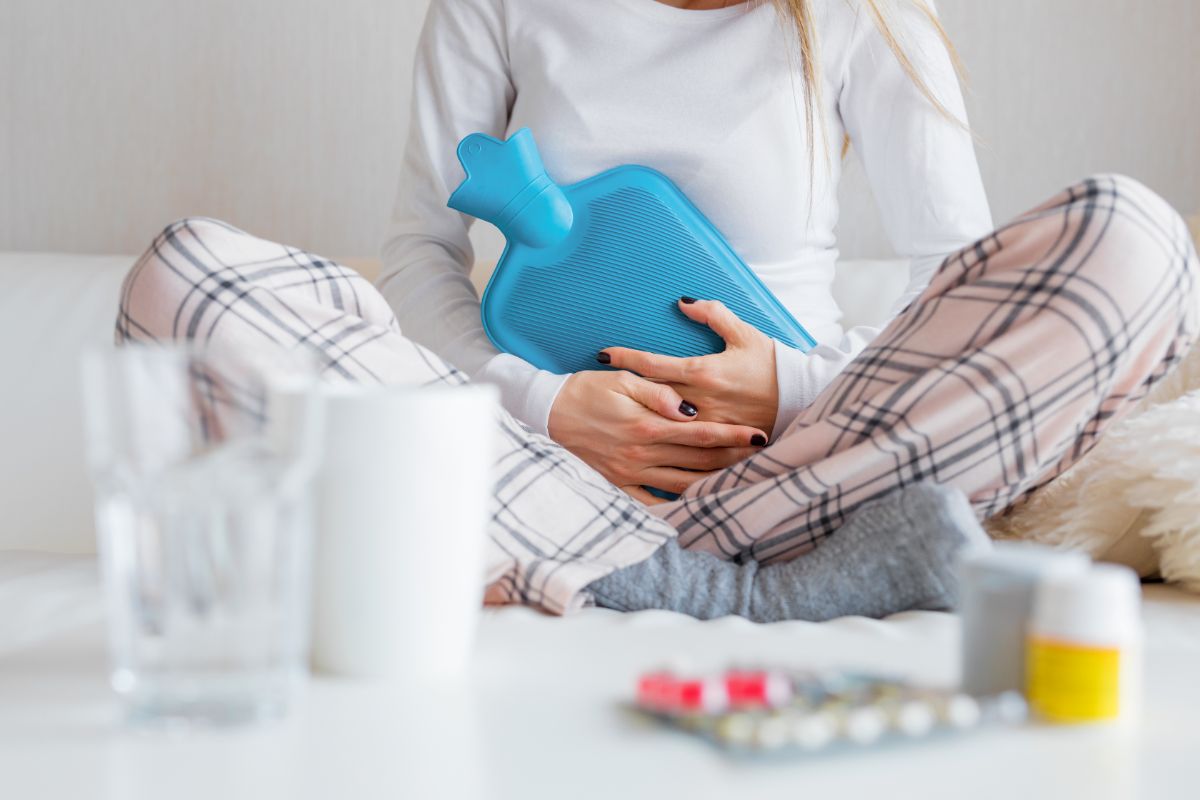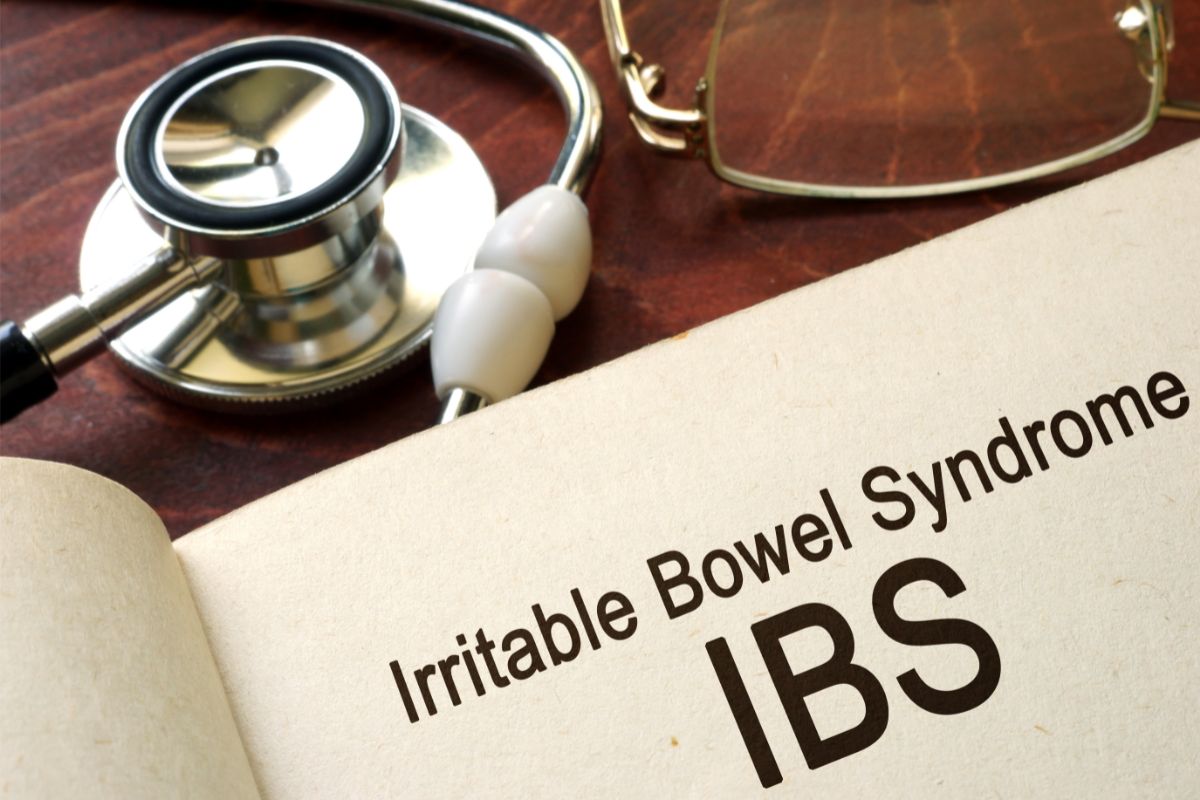One of the main problems for those who suffer from IBS is that there isn’t really one form of medication that will alleviate painful symptoms. Because of this, individuals that do suffer have to become a little more creative when it comes to finding ways to manage and reduce their pain.

There are quite a few different methods to try which may make managing your IBS a lot easier; some tend to work better than others. But it’s always worth giving them a go.
How Painful Is IBS?
Before we go into the different ways to help manage the pain, let’s take a minute to discuss how painful IBS can be.
Keep in mind that pain is actually one of the main symptoms when it comes to assessing whether someone has IBS.
For a person to be diagnosed with IBS they must meet the following criteria:
Recurrent abdominal pain at least one day a week for a minimum of three months, associated with at least two or more of the following
- Related to defecation
- Associated with a change in frequency of stool
- Associated with a change in form/appearance of stool
Feelings of discomfort can range from fairly mild to such an intense stabbing pain that it has often been mistaken for heart attack pains or appendicitis.
If an individual has IBS pain that lasts longer than 6 months it is referred to as chronic long-term pain.
So the answer to how painful can IBS be is extremely painful. This is why managing pain relief best you can is imperative.
5 Ways To Manage IBS Pain
1. Using Heat
Your best options for managing abdominal pain from IBS are either a hot water bottle or a heated pad.
Hot Water Bottle
A hot water bottle is a great option for nighttime as they are safe to sleep with. You just want to be sure that the lid is screwed on tight and that there are at least one or two layers between the water bottle and your skin to ensure that you do not burn yourself.
Heated Pad
A heated pad is another great option, although you should not fall asleep while using a heated pad. The benefits of using these throughout the day though are that they tend to be a little warmer than hot water bottles.
Although like a hot water bottle, you should always ensure a layer or two between the skin to prevent burning yourself.

2. Drink Soothing Tea
If you’ve tried applying some heat to the outside of your body, you can always try soothing the inside of your body too with a cup of herbal tea.
This isn’t the only benefit of a herbal tea though, the ingredients are also known to help ease digestive pain. Peppermint tea is a good choice since it is known to soothe the digestive tract.
Fennel and anise teas can also provide relief for those suffering from constipation.
3. Probiotic Supplements
Many people have found that probiotics have eased IBS symptoms. Certain types of microorganism strains such as Bifidobacterium infantis are known to balance out bacteria found in the gut.
However, some disagree with the use of probiotic supplements, saying that there isn’t enough reliable evidence or research.
If you think that probiotics might work for you, you should always discuss this with a medical professional or healthcare provider first.
4. Start A Food Diary
If you haven’t already, you should start a food diary. Keeping track of what you’re eating each day can help you identify certain triggers that may be making your IBS flare-up.
Be sure to track how severe your symptoms have been each day so you can keep track and see which foods reoccur on the most and least painful days.
It may also be a good idea to keep track of other factors that may affect your symptoms such as how stressful your day was, how much sleep you had the night before, and where you are in your monthly cycle.
These can help identify other patterns that may be causing your symptoms to be worse.
5. Learn What You Should And Shouldn’t Eat
There are two main ways that you can do this:
- Elimination Diet – Avoid a food type, or several food types, that you deem to be triggers for one to two months. Assess your symptoms throughout this time period. You can add foods back in one at a time, and if the introduction of an item flares up your IBS you have identified the issue.
- Try The Low-FODMAP Diet – This diet is a form of an elimination diet that is known to be quite effective in reducing the painful symptoms of IBS. The process of this involves restricting carbohydrates for a while and then slowly adding them back into your diet observing how your body and symptoms respond.
6. Learn To Eat Right
It’s not only what food you eat that you should be observing, but how you are eating that food. It is important to keep track of your personal eating habits and observe how these impact your bowel functions.
You want to ensure that you are eating regularly each time every day as this creates a predictable schedule for your body and can help it regulate better.
You should also try eating smaller meals more slowly if you are having painful symptoms. Avoiding greasy, fatty, or gassy foods will also help alleviate some of the pain.
Final Thoughts
When IBS is at its worst it can really feel like it interferes with your quality of life. This is why managing the pain is so important.
There are a few home remedies that you can try such as applying heat or sipping soothing teas and you can also try and track your food habits to learn how to avoid flare-ups.
However, if your symptoms persist, or you are particularly concerned about your symptoms you should always refer to a medical healthcare provider.
- Understanding Male Reproductive Health: A Complete Guide - February 2, 2025
- Simple Healthy Skin Habits for Radiant Skin - December 6, 2024
- Unlocking the Connection Between Nutrition and Mental Health - December 3, 2024








